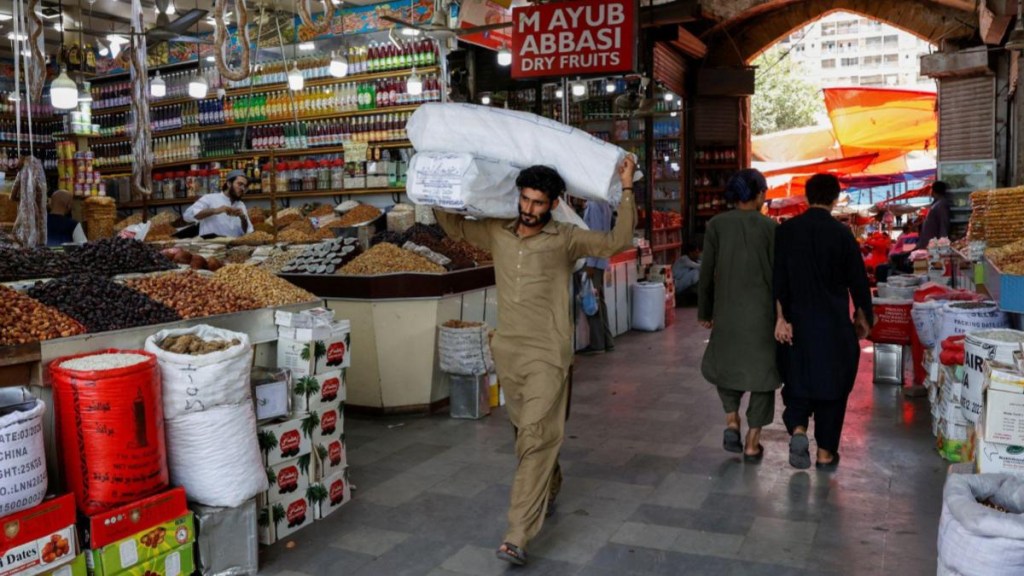Pakistan has revised its economic growth forecast downward for the current fiscal year, citing global trade disruptions and stringent conditions set by the International Monetary Fund (IMF), Bloomberg reported on Tuesday.
According to the Pakistan Bureau of Statistics, the country’s gross domestic product (GDP) is now expected to grow at 2.68% through June, down from the earlier government projection of 3.6%. This estimate is only marginally higher than last year’s growth of 2.5%.
According to the Bloomberg report, the revised forecast will play a crucial role in shaping the federal budget, which Prime Minister Shehbaz Sharif’s government plans to present on June 2. The downgrade reflects challenges from slowing global demand and tighter external financing.
Pakistan’s export-driven sectors such as textiles and agriculture are expected to suffer under new US trade policies, it stated. President Donald Trump’s administration has imposed a 29% reciprocal tariff on several goods, putting additional pressure on the country’s trade balance.
The IMF and the Asian Development Bank have also lowered their growth outlooks for Pakistan, pointing to sluggish economic activity and growing geopolitical uncertainty. In the January–March quarter, Pakistan’s economy grew 2.4%, slightly above Bloomberg’s 2% forecast, but still insufficient for reaching the annual target.
These financial constraints come as the country reels from increased regional tensions after the April 22 terror attack in Kashmir’s Pahalgam that killed 26 people and triggered a military escalation with India.
Notably, just two days before approving a $2.4 billion loan facility for Pakistan, the International Monetary Fund (IMF) flagged serious concerns over “reputational risks” and rising tensions with India.
In a Supplementary Information report dated May 7, the IMF’s Middle East and Central Asia department warned that escalating India-Pakistan tensions could pose “enterprise risks” to Pakistan’s fiscal, external and reform objectives.
The document also noted that any “perceived misuse” of IMF disbursements or “lack of even-handedness” in its operations could damage the Fund’s credibility. It stressed the need for “careful Fund communication” to emphasise its neutrality and avoid misinterpretations of its support programs.
Despite these concerns, the IMF board met on May 9 in Washington DC and approved the facility to aid Pakistan’s struggling economy under strict reform conditions.

